Ponir - fight beyond the bullet
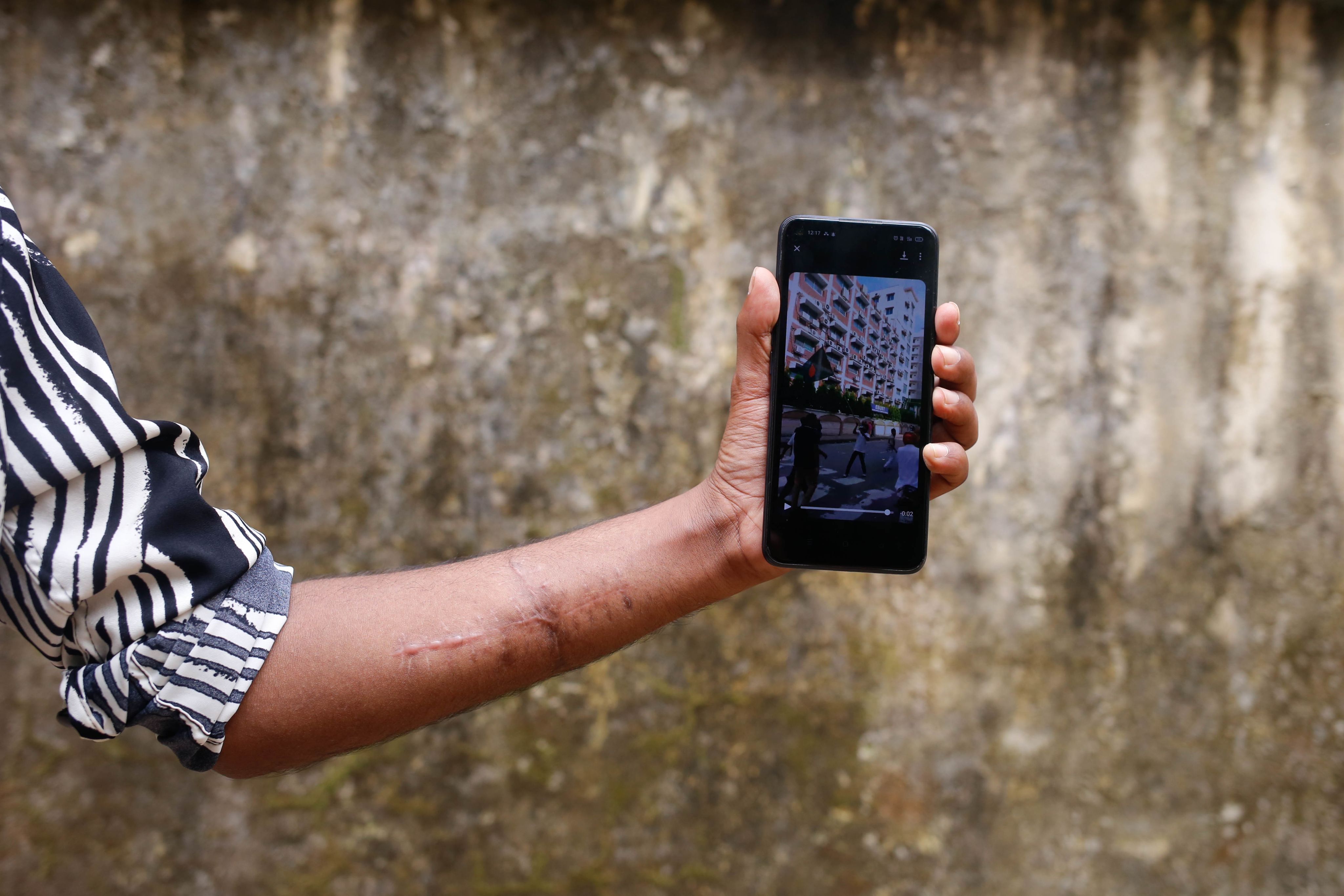
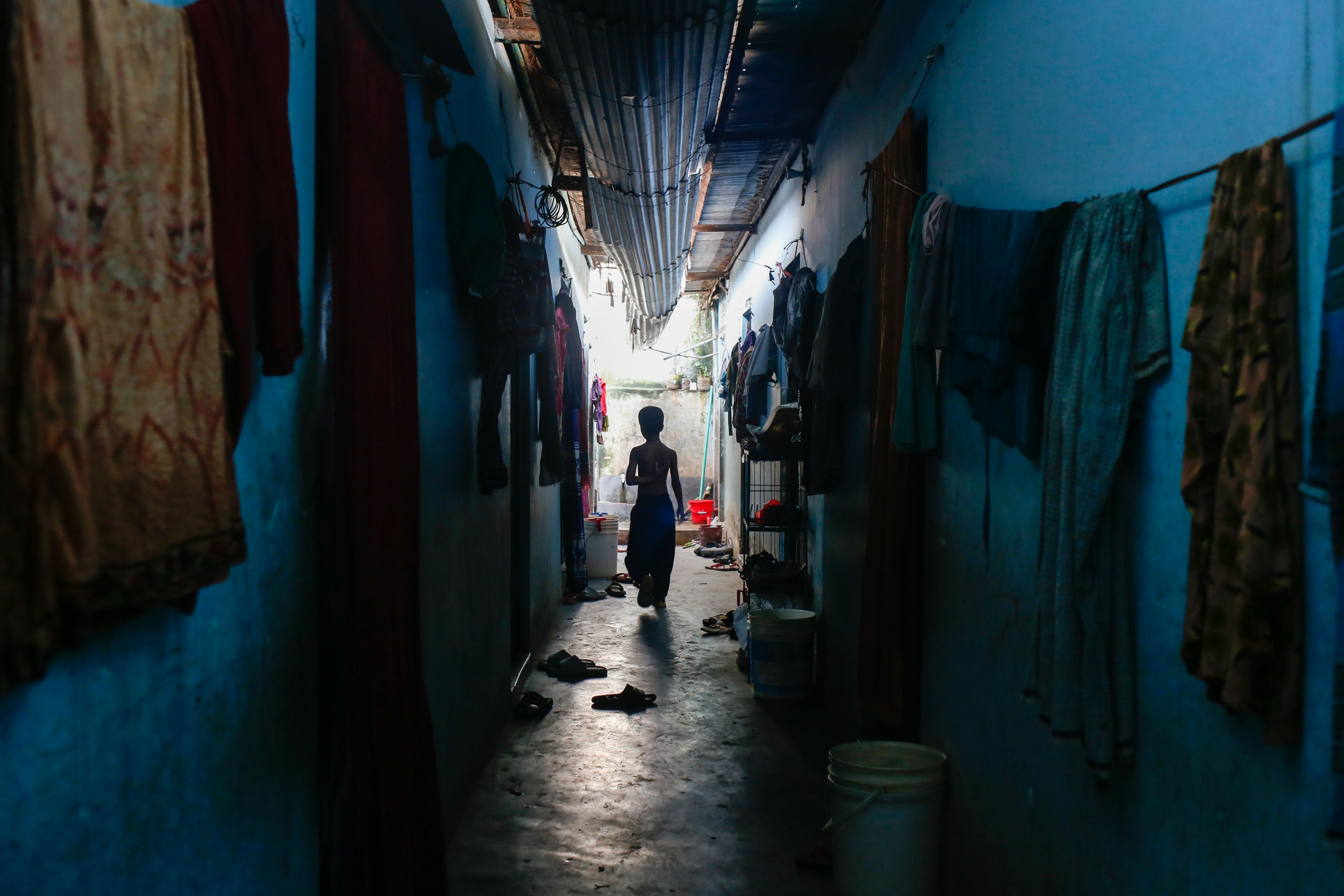
Twenty-two-year-old Ponir grew up in the narrow, dust-choked lanes of Mirpur’s Pallabi neighbourhood, where politics was not an abstract idea but a force that reached straight into his family’s home. His father, a vegetable seller at the local bazaar, fought each day to keep food on the table, only to see part of his meagre earnings vanish into the hands of men who arrived without warning but with clear intent.
“They’re here again,” Ponir remembered thinking as he watched his father’s weathered hands count out the notes, his eyes fixed on the ground.
“Baba, who are they?” he once asked.
For a moment, silence. Then, in a voice drained of hope: “They’re local politicians.”
Ponir protested — why give them anything? — but his father’s answer was final, heavy as stone: “That’s the way, my son. If you want to do business, you pay them.”
It was a lesson Ponir never forgot. In the humid air of that market, he understood that survival in their corner of Dhaka came at a price, and that the poorest always paid it first.
On 18 July 2024, Ponir stepped into the streets with his friends, his voice joining the roar against the regime of former Prime Minister Sheikh Hasina. To outsiders, it looked like politics. To Ponir, it was survival — a defiance against a system that had ground down families like his for years.
He kept it from his mother.
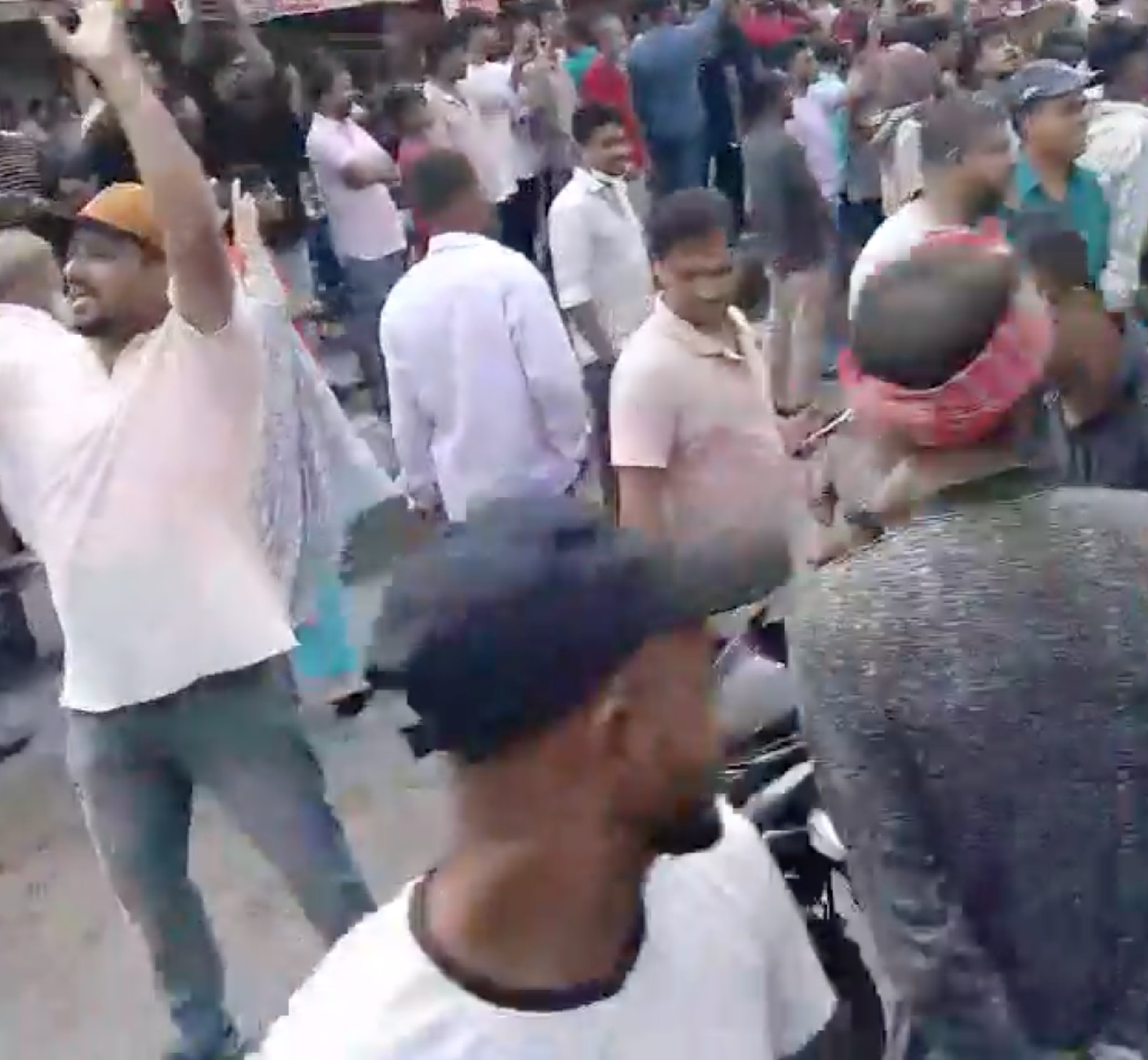
Weeks later, on 5 August, he was at lunch, rubbing his leg. His mother, haunted by the funerals of other mothers’ sons, begged him to stay in.
“I only have a little pain,” Ponir said. Then, quietly: “Imagine those who live with bullets still in their bodies.”
By the time she realised her son was gone, he had already slipped through the back alley towards the “Long March to Dhaka” rally.
By mid-afternoon, the city was a rumour mill of dread — whispers of martial law thickening in the air. At Mirpur 2, the protest collided with the ruling party’s youth wing. Stones clattered against asphalt. Gunfire cracked through the noise. Ponir was still standing when a sharp, white-hot pain tore through his left arm — then another blast to his chest. The world tilted. He hit the ground.
He was certain he would die there. But in the chaos, a stranger — himself fleeing the gunfire — stopped. He stripped off his shirt, binding Ponir’s bleeding arm with trembling hands. Another man joined. They searched frantically for a ride through streets abandoned by rickshaws and cars. Finally, an auto-rickshaw took them to a small hospital in Kazipara.
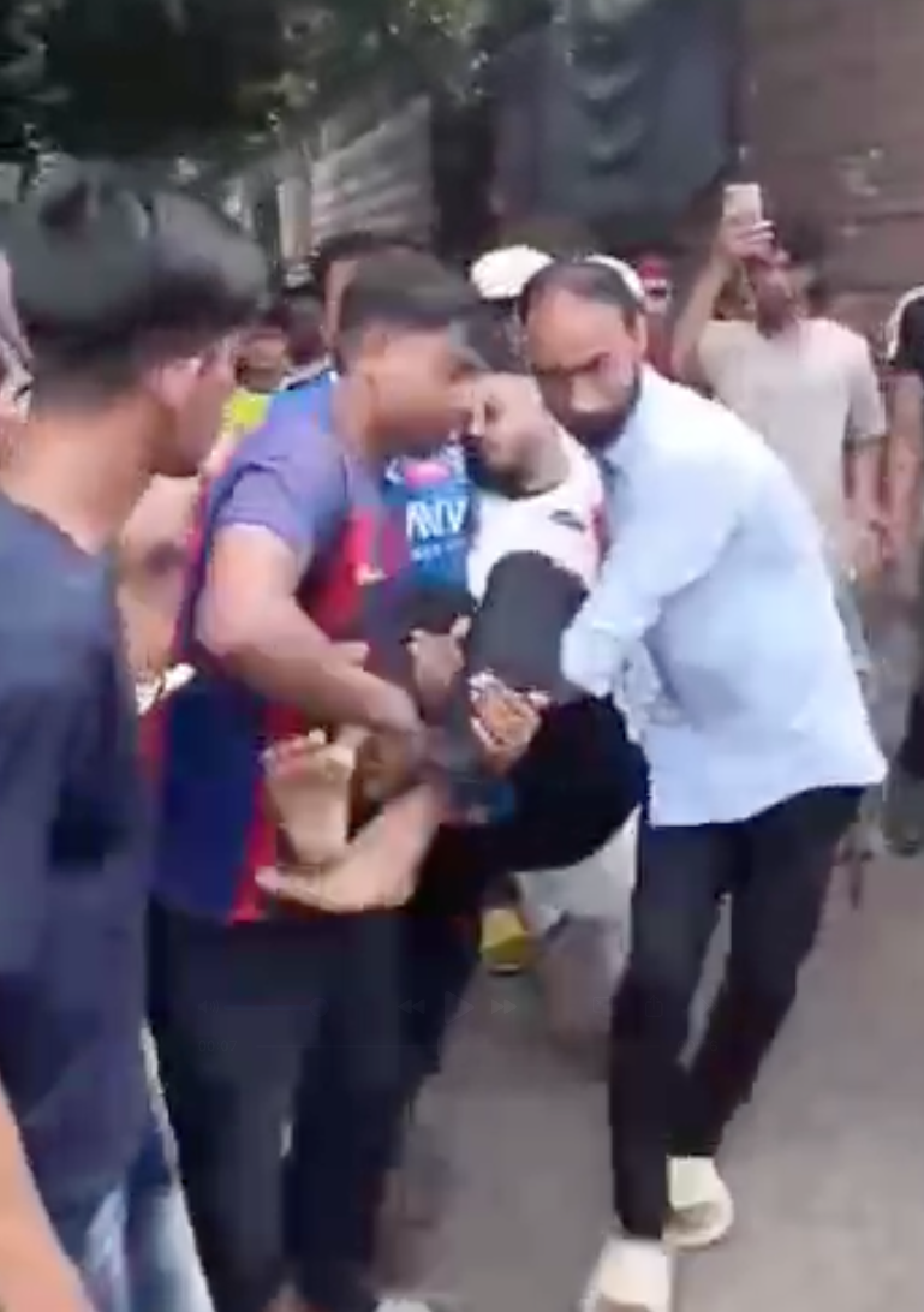
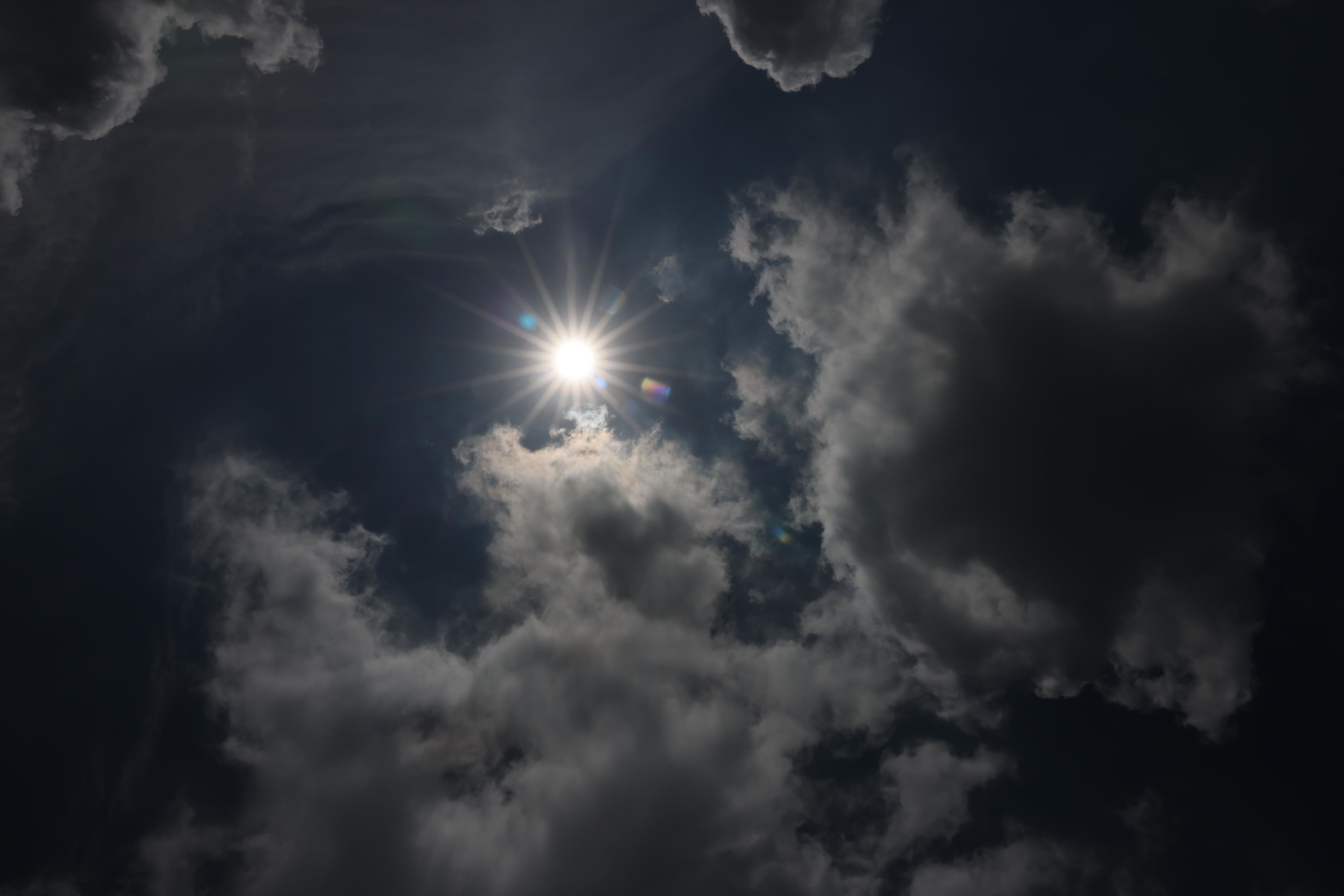
Doctors took one look and told the truth: Ponir needed Dhaka Medical College Hospital (DMC).
The journey there was a nightmare — blocked roads, panicked crowds, the city vibrating with unrest. Army personnel found him and hoisted his limp body into a military vehicle. But even the army was stuck in the chokehold of Dhaka’s traffic. They veered instead to Square Hospital, where the verdict came cold: “We have no specialists for gunshot wounds.”
By then, Ponir’s breathing was shallow. His blood pressure spiked. Only after desperate pleading did the hospital’s managing director agree to send him to DMC by ambulance.
Four hours after being shot, Ponir was finally wheeled into the overcrowded medical centre, past rows of bloodied bodies. He thought these were his final moments. “I only spoke to Allah,” he said later. “I said, please, let me live. Just this once.”
The bullet blurred his vision. He whispered the kalimah, unable to cry out.
For nine days in DMC’s burn unit, he received only five dressings. On 14 August, surgery was scheduled.
A ward boy tried to “comfort” him with a grim reminder: “Many people have died on this bed.”
Ponir thought about running. Instead, he lay down.
The first incision came without anaesthesia. He screamed as the surgeons worked on his mangled arm, slicing deep and severing a vein in his finger. Only after two hours did someone finally administer the drugs that numbed the world. A senior doctor entered, corrected the dosage, and the rest of the operation passed in silence.
When the anaesthesia wore off that night, the pain roared back. He cried out — no one came. A nurse finally appeared with a single painkiller. It lasted only hours. She refused a second dose, warning of kidney damage.
For three days, he lay there, eyes wide open in agony.
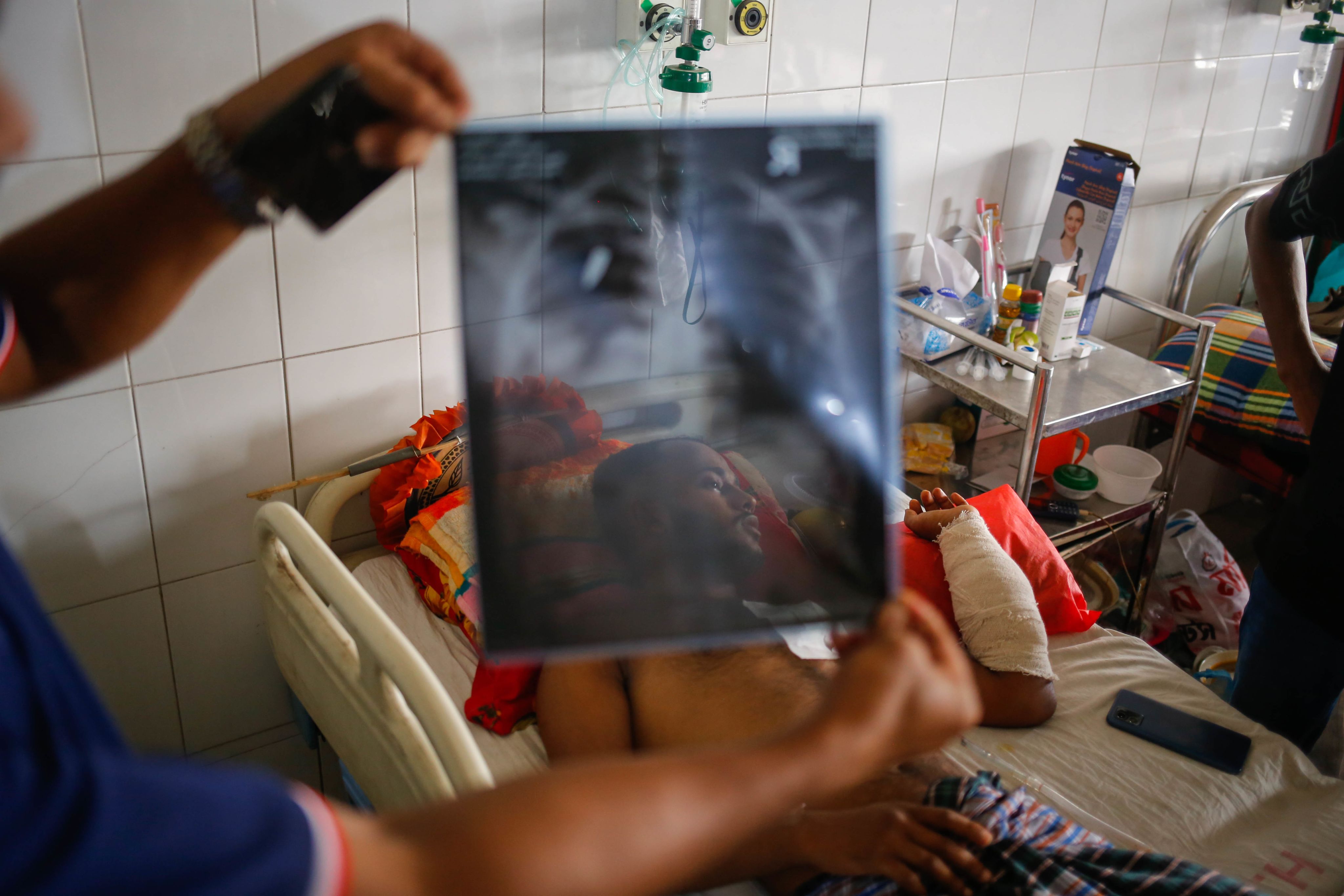
On 15 August, they cut into his chest to find the bullet, but it was too deep. He was moved to the BGB Hospital in Pilkhana. Doctors told him to live with it — “Even war veterans keep their bullets.”
After 25 days, he left the hospital still carrying the metal inside him, and a weight in his chest far heavier than the lead.
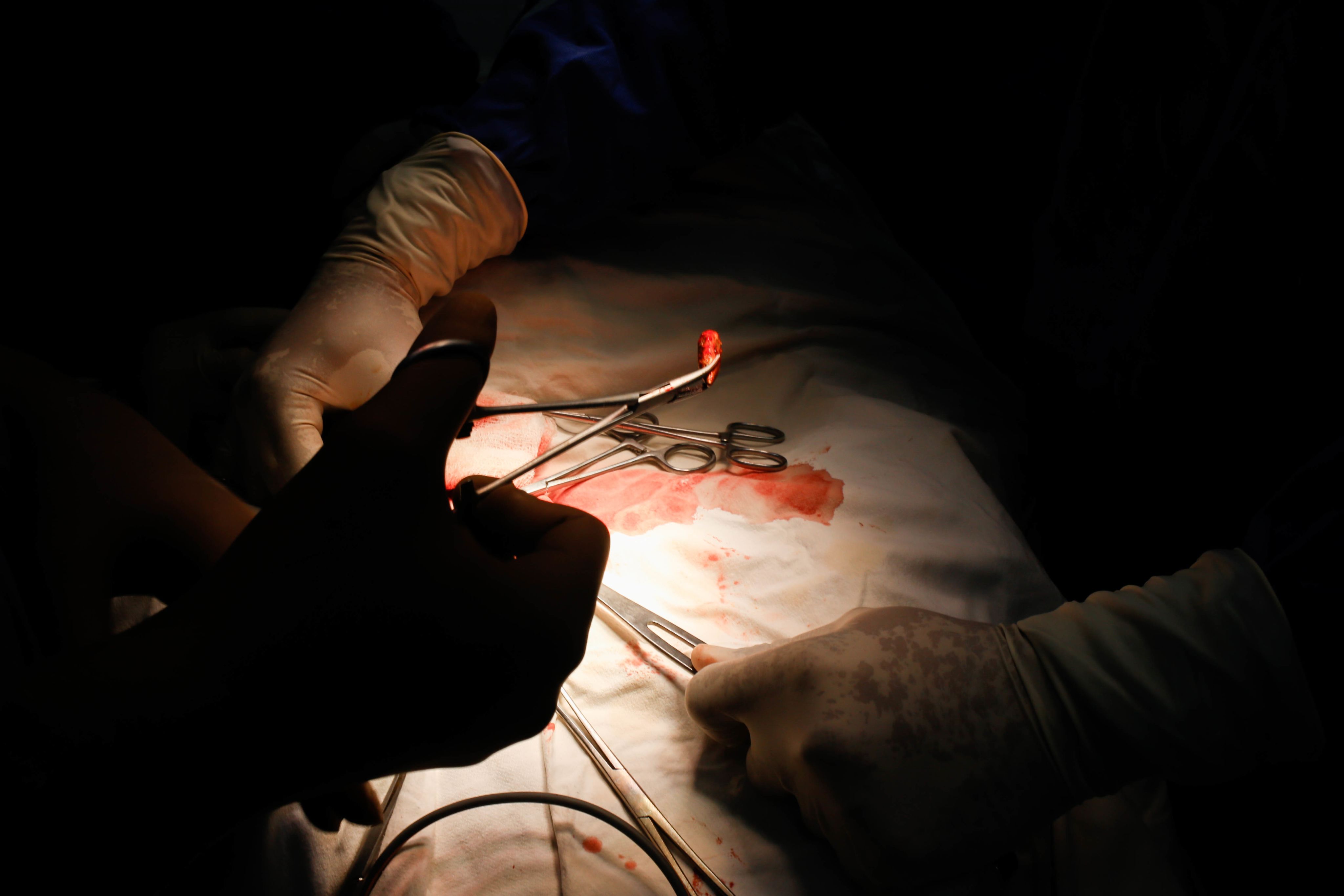
Back in Mirpur, Ponir searched for help. Student leader Sarjis Alam came and went. A BNP spokesman advised filing a case against a local ruling party leader. None of it was about healing.
Weeks later, hope arrived in the form of Naimur, whose brother had undergone surgery with Dr Mahbubur Rahman. In late October, Ponir met the doctor, who advised bringing media to witness the operation. Ponir — exhausted by months of pain, politics, and spectacle — could barely manage the thought.
Still, he went under the knife again. This time, the bullet came out.
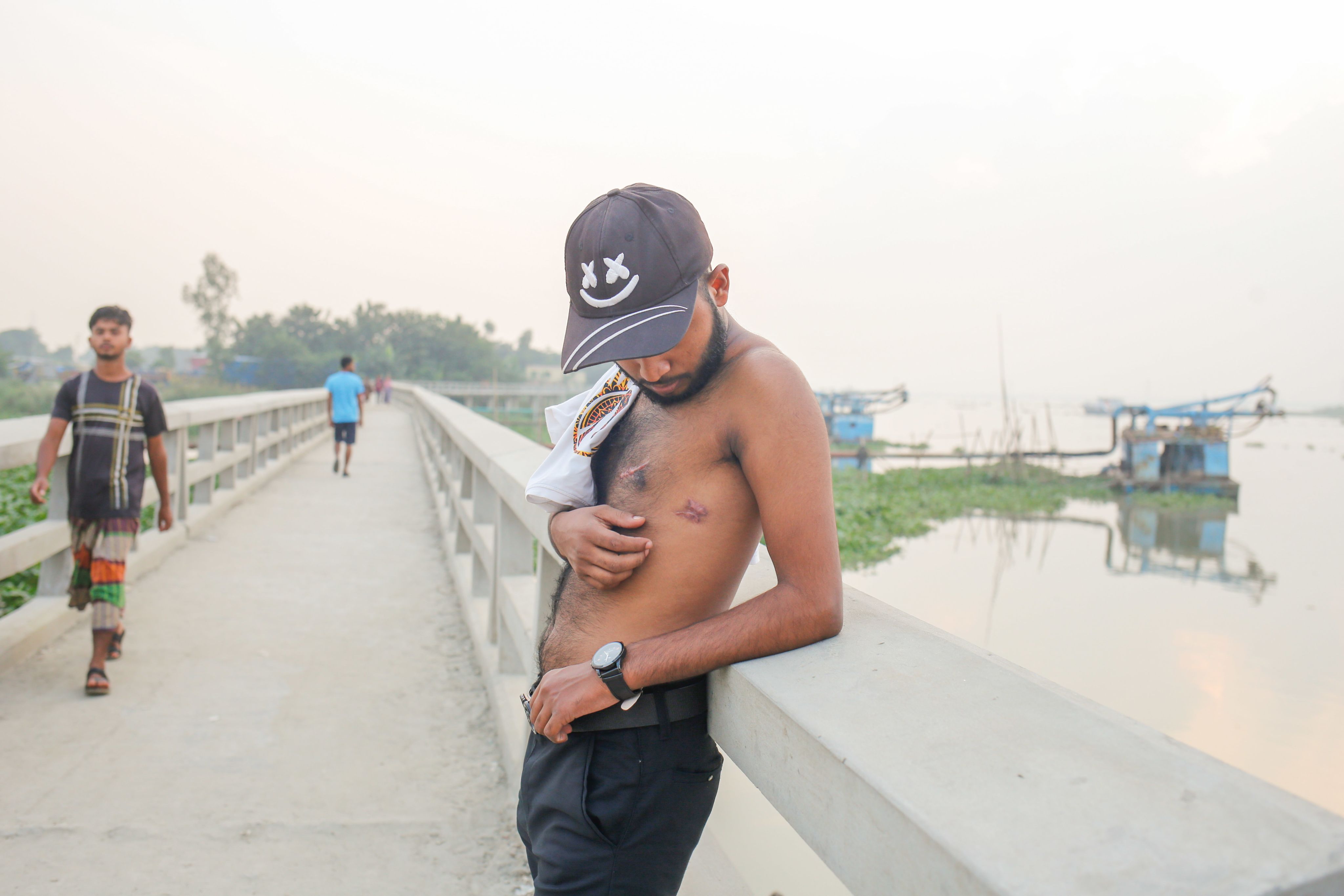
For the first time since that August afternoon, Ponir woke without it inside him — the metal gone, but the memories unshakable.
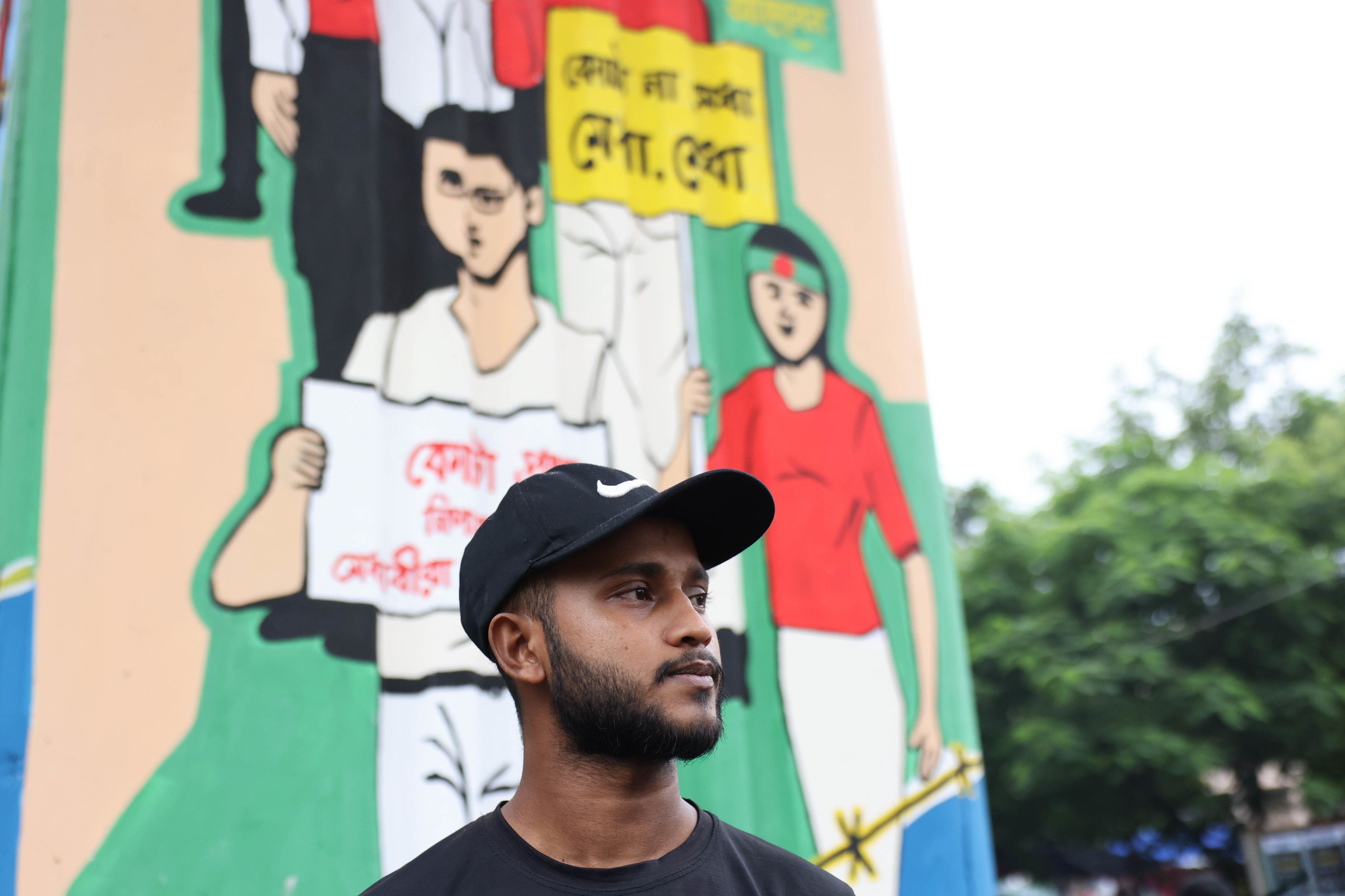
While he lay in BGB Hospital, the July Foundation was born — a new symbol of the movement that had upended Bangladesh’s politics. Through an online form, his name was entered into its rolls, marked as a Category C case. But no one came. No phone calls. No visits.
Only silence. Weeks later, an envelope arrived with a cheque for 100,000 taka — a token gesture that felt more like a dismissal than aid.
By March 2025, the cost of his surgery revealed itself with cruel clarity: three of his fingers hung lifeless, the arm that once carried crates at his father’s stall now a dead weight. “I’m trapped,” Ponir said. “I live in limbo unless they cut it off.” He began to wonder if the foundation’s judgement of his case was not just flawed but indifferent.
His search for help turned into a bureaucratic relay. The July Foundation sent him to the Muktijuddha Foundation, which sent him to the Civil Surgeon’s Office, which sent him back to BGB Pilkhana Hospital — each demanding another document, another seal, another proof of his worthiness.
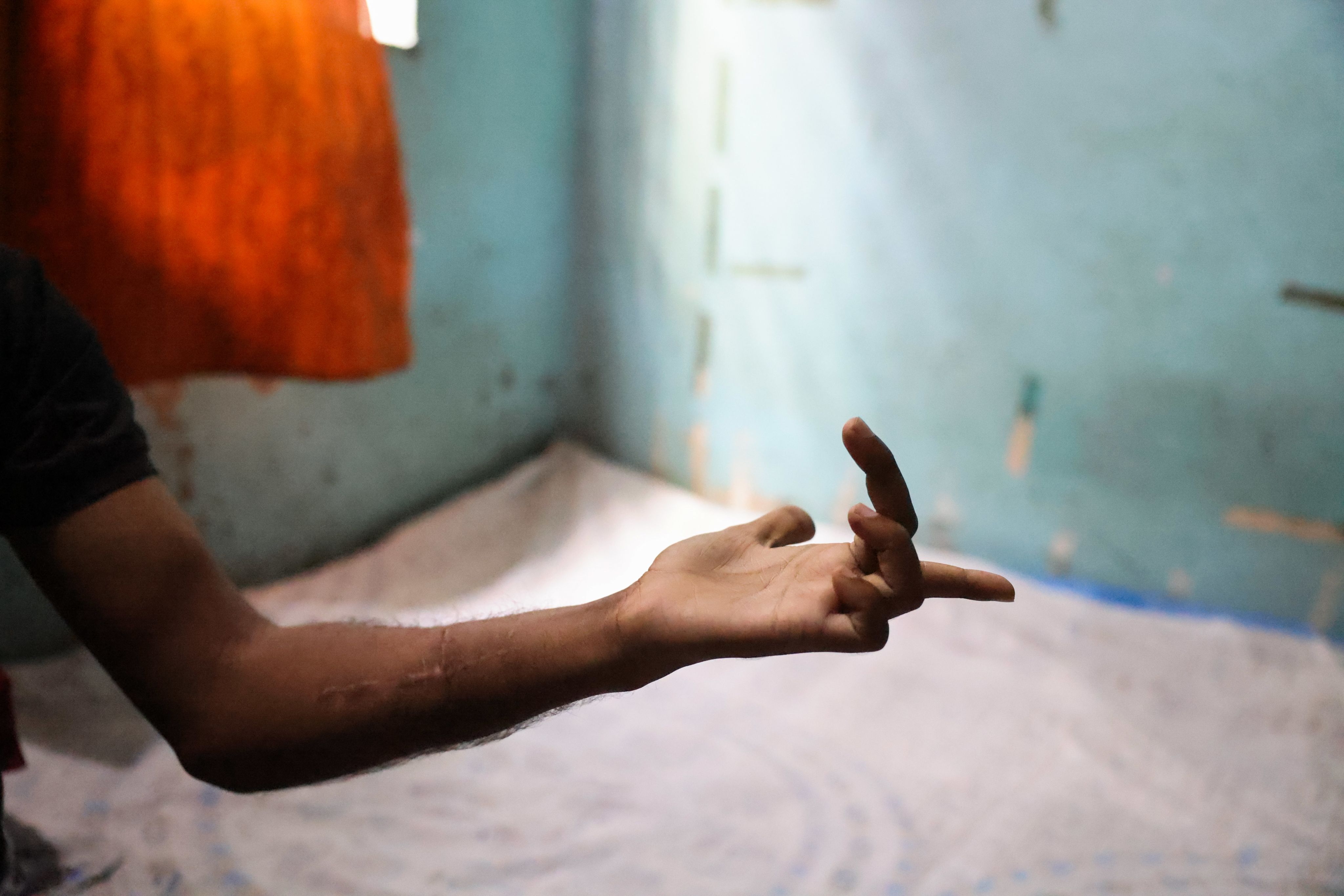


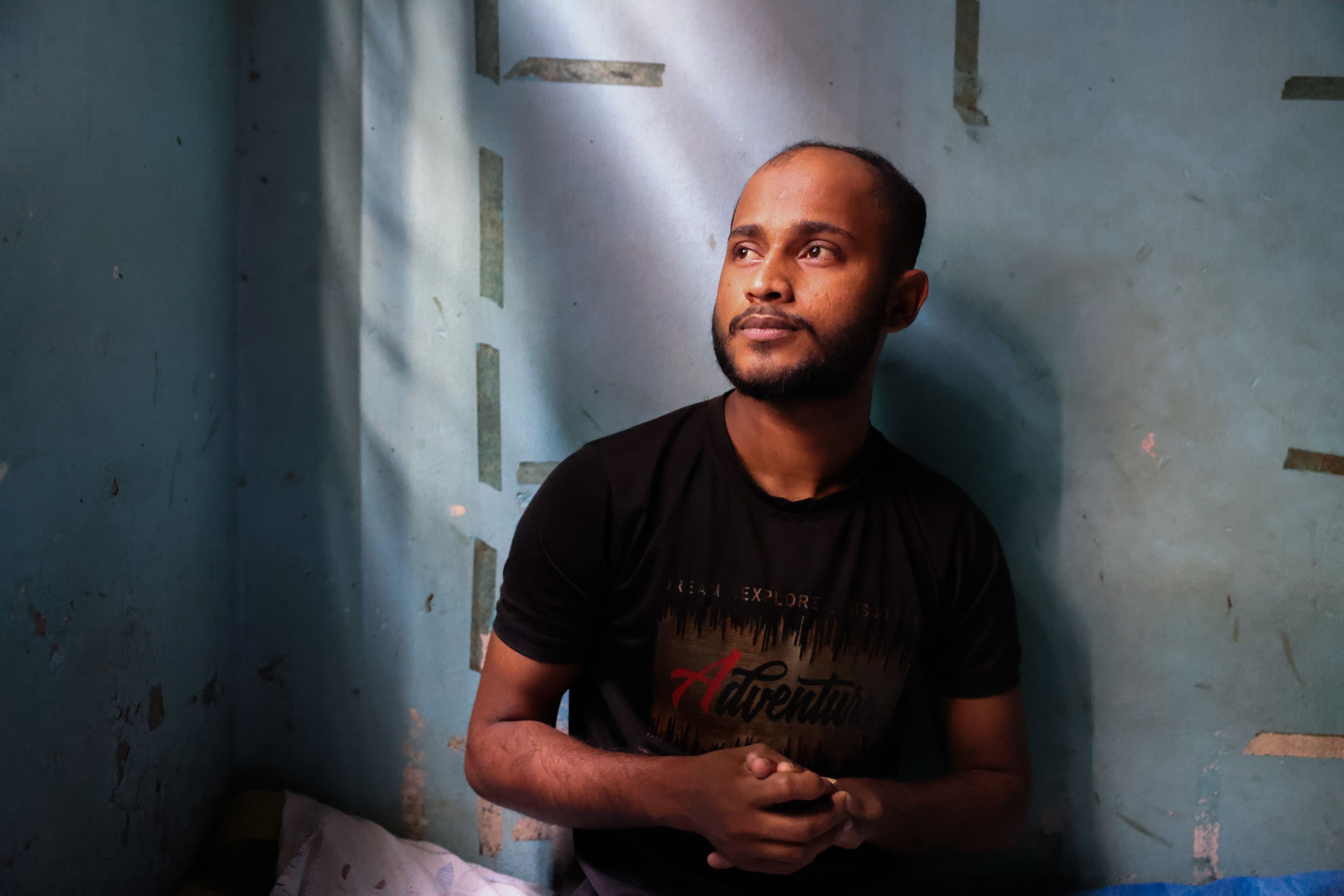
A year has passed since the fall of Sheikh Hasina — a victory built, in part, on sacrifices like Ponir’s. Across Bangladesh, political parties now trade in the language of “the July spirit”, invoking it at rallies and in speeches. Yet for Ponir, the spirit is hollow.
He is still stuck between offices, between promises, between the man he was and the man he has become.
“I wish I had listened to my mother on 5 August,” he said quietly. “A year later, I still don’t know how to get back to the morning of 18 July 2024 — before the bullet, before the pain, before everything changed.”
Photos: Jannatul Ferdaus
Screengrab: Roni Hossain
Text : Anik Rahman
Story Edited By M Abul Kalam Azad
